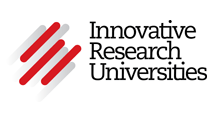Work Integrated Learning (WIL)
Work Integrated Learning (WIL) is the broad term referring to any structured and purposefully designed learning and assessment activity in a course curriculum that integrates theory with the practice of work. This encompasses clinical placements, internships, field education and industry projects.
WIL is a key element of Flinders University’s commitment to high quality learning and teaching. It is recognised as making a significant contribution to the transition of graduates to the workplace.
There are two categories of WIL:
- that which enables students to demonstrate development towards meeting required professional standards of practice, in accordance with professional accreditation requirements, and
- that which introduces students to practices of work relevant to their degree where workplace experience is not a prerequisite for entry into a vocation.
WIL may take one of the following forms:
- outside the University environment with a host organisation
- within the University environment in conjunction with an external partner, or
- within the University environment where the partner is the University in its capacity as an employer
- both onshore and offshore
Flinders University places an emphasis on integration as a key element of WIL and recognises the importance of student-centred learning as a focus for its delivery. The University has a clear commitment to WIL. All undergraduate and, where relevant, postgraduate coursework courses must include an opportunity for students to undertake a WIL activity as a core or elective component of at least one topic in a course. If the professional accreditation of a course requires students to complete specified WIL placement/s, all such placements must be provided, and satisfactory completion must be a compulsory requirement for successful completion of the course.
These pages have been designed to provide information and resources to support WIL delivery for university staff, and our host organisations.
As a strategic educational priority at Flinders University, Work Integrated Learning (WIL) offers all stakeholders a unique opportunity to work in partnership to link theory and practice. It is a core aspect of the learning experience and recognised as making a significant contribution to the transition of graduates to the workplace. As a University staff member, WIL offers you the opportunity to:
- Provide students with an effective and constructive learning experience integral to their course of study.
- Identify new and innovative research opportunities linked to practical applications.
- Establish mutually-beneficial links and partnerships with a wide range of public, private and not-for-profit organisations.
- Work with host organisations to ensure that your commercial or industry-related teaching is up-to-date.
- Use links to encourage employers to participate on-course validation panels in the development of subject areas, present guest lectures or participate in seminars.
- Create and tailor innovative or more applicable WIL opportunities through collaboration with past employers of placement students.
WIL support activities are organisationally incorporated into Learning and Teaching Services, with operational support located at the College level. This local area support ensures operational staff are closely aligned with the teaching programs they service.
Our aim is to ensure we deliver meaningful WIL opportunities at Flinders that are intentional, organised, supervised and assessed to maximise the potential benefits for all stakeholders.
- Flinders University: WIL Policy
- Flinders University WIL Procedures
- Flinders University: Student Consent for Internal WIL Placement
- Flinders University: Work Integrated Learning for Academic Staff FLO Topic
- TEQSA Guidelines
- IRU – Workplace Supervisor example resources
- IRU - Work-integrated Learning: Principles of good practice to guide member universities in the strategic development and management of WIL
- ACEN – Supervision Good Practice Guide
- ACEN - A framework to support assurance of institution-wide quality in Work Integrated Learning
- National Priorities and Industry Linkage Fund (NPILF)
Work Integrated Learning (WIL) positively impacts the learning experience in many ways. A WIL experience is an opportunity to apply classroom learning to a professional environment. WIL is a key element of the University’s commitment to high quality to teaching and learning and improves graduate employability by increasing work readiness and competitiveness. Engaging in WIL activities provides students with an opportunity to put theoretical learning into practice regardless of the discipline they study. Effective WIL activities meet the needs of industry, students and universities in developing, delivering and reflecting upon learning experiences that benefit all stakeholders.
Work-Integrated Learning has the ability to provide significant benefits for employers, students, and academics :
Benefits for employers
- Having a dedicated resource to complete specific tasks or projects
- An injection of fresh ideas and approaches to the workplace
- A pipeline to future talent and the opportunity to give a potential recruit a trial without obligation
- Using students' reflection on work experience as a recruitment criterion
- Developing links with higher education institutions and feeding into teaching practices and methodologies and
- Staff development opportunities that arise from employees mentoring students.
Benefits for students
- Apply classroom learning to a professional environment; Gain exposure to standard equipment and resources, organisational culture, and expectations of employees in the workplace; Develop employability skills including communication, team work, problem solving, leadership and career development;
- Build professional awareness and networks prior to graduating, Develop an appreciation of the fluidity of a rapidly changing world of work;
- Developing enhanced employment prospects and the potential of commanding higher wages on graduation;
- Make a valuable contribution, creating products, outcomes and recommendations that are relevant to your field and
Benefits for academics
- The opportunity for students to see their subject area in practice
- The ability to integrate student learning experiences into curriculum development
- The enhancement of students' skills and graduate employability
- Establishing links with a wider range of employers
- Using employer contacts to ensure that their commercial or industry-related teaching is up-to-date
- Using links to encourage employers to participate on-course validation panels in the development of subject areas, present guest lectures or participate in seminars
- The creation and tailoring of innovative or more applicable WIL opportunities through collaboration with past employers of placement students
- Identifying new and innovative research opportunities linked to practical application and
- Developing expertise in assessment methods by working with employers who have experience in assessing 'employability' skills.
Flinders University is committed to developing creative, enterprising, career-ready graduates prepared to become lifelong contributors to society. Offering our students Work integrated Learning (WIL) opportunities enhances their graduate employability and capacity to meet the requirements of tomorrow’s workforce.
By hosting a placement student, taking on a workplace project, or working with us in delivering an on-campus, industry project, you can contribute in developing enterprising graduates equipped with the skills required for success in the knowledge economy.
Working in partnership with our students and Flinders University also offers significant benefits to you including:
- Talent identification and helping you find the best recruits
- Having a dedicated resource to complete specific tasks or projects
- The opportunity to give a potential recruit a trial without obligation
- Forging greater collaborations with higher education institutions and feeding into teaching practices and methodologies
- An injection of new and fresh ideas into your organisation
- Contributing to the development of tomorrow’s workforce
- Staff development opportunities that arise from employees mentoring students
Flinders University is committed to supporting students in each phase of their placement, including monitoring their work and progress as well as assessment. All university courses and topics are quality assured in line with the Higher Education Standards Framework (Threshold Standards) and our relevant policies and procedures.
The National Strategy on Work Integrated Learning in University Education is a partnership approach between universities and enterprises to improve the quality and capacity of education and the innovation, breadth and competitiveness of our economy. It has been developed to improve the scale, breadth and value of work integrated learning and improve the work readiness of graduates. Flinders University is actively engaged with external bodies to progress work in this area and ensure our students are effectively prepared for entry into professional practice.
WIL networks
Australian Collaborative Education Network (ACEN)
The ACEN is the professional association for practitioners and researchers from the higher education sector, industry, community and government representatives involved in Work Integrated Learning (WIL) in Australia.
If you are a Flinders University staff member, you can join ACEN free! As an ACEN member you will be joining the national leading network for WIL and thereby extend your opportunities to access and be a part of the ongoing development and research in WIL, both at a national and global level. ACEN is a partner of the World Association of Cooperative Education (WACE) and has negotiated an arrangement whereby membership of ACEN automatically provides for concurrent WACE membership.
National Association of Field Experience Administrators (NAFEA)
NAFEA represents tertiary administrators engaged in the logistical placement of students for field experiences. The issues and problems surrounding the logistical organisation of field experience programs are addressed and discussed are relevant to all disciplines. Flinders University has an institutional membership, meaning all staff are able to join for free.
Innovative Research Universities (IRU)
IRU is a network of seven comprehensive universities conducting research of national and international standing. The IRU network has national reach, with an institutional presence in every mainland State of Australia and the Northern Territory. The IRU have developed a range of practical tools to help business and industry engage with universities, to work together to develop Australia's future skilled workforce.


![]()
Sturt Rd, Bedford Park
South Australia 5042
CRICOS Provider: 00114A TEQSA Provider ID: PRV12097 TEQSA category: Australian University





